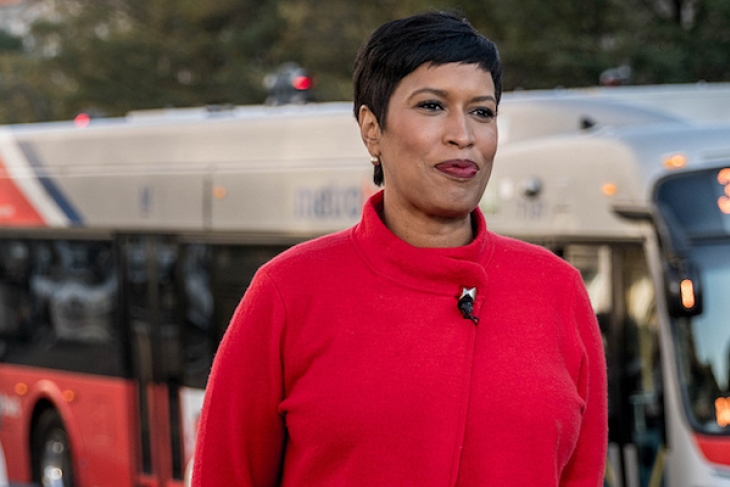A couple weeks ago, the Washington Post's Editorial Board rightfully reminded D.C. residents what education in the city was like before mayoral control. “School didn’t start on time each fall because buildings weren’t ready,” it writes. “Textbooks stayed stacked in warehouses because the central office failed to deliver them to classrooms. Teachers were hired and principals appointed for who they knew, not what they could accomplish. Students didn’t learn because no one expected them to.”
Such examples are infuriating—and accurate—especially in light of two bills and a separate proposal that were recently introduced to the D.C. City Council and would chip away at the mayor’s authority over education. Again, from the aforementioned Washington Post editorial:
Council member David Grosso (I-At Large), chair of the Education Committee, wants to establish the Office of State Superintendent for Education as an independent agency and extend the term of superintendent from four to six years. The bill would strip the mayor of the ability to remove the superintendent at will and give the agency authority to hire all its personnel, rather than giving the mayor discretion in filling some positions. A proposal by council member Mary M. Cheh (D-Ward 3) would go even further in the wrong direction, transferring authority over the agency from the mayor to the elected State Board of Education.
The mayor, under both bills, would still have authority over the schools chancellor, but the legislation—along with a proposal to create a new agency under the D.C. auditor to collect and analyze school data—is the opening gambit in an effort to diminish the mayor’s role.
The Post’s editorial board believes that passing these measures would be a mistake. We agree. And some background on the Office of State Superintendent for Education (OSSE), and the city’s education governance more generally, will help explain why.
Despite its lack of statehood, D.C. receives federal funds, and federal educational legislation treats it like a state. Mayoral control reflects this by untangling state responsibilities that were previously handled by the city’s public school district. Those responsibilities were placed within the Office of State Superintendent for Education, D.C.’s equivalent to a state department of education.
D.C.’s governance structure also resembles that of states in many ways. The city’s mayor appoints a superintendent, just as governors do. There’s a board of education that considers various policies, and a City Council that approves the budget and calls hearings on any education issues. And OSSE has some of the traditional responsibilities of a state education agency (SEA)—standards, assessments, accountability, and implementing federal laws for D.C.’s one traditional district and more than sixty charter school districts.
But the city is different in many ways, too, especially in regards to OSSE. On top of everything else, it also manages the city’s complicated school busing services, its popular early childhood and prekindergarten programs, the generous higher education grants given to its city’s graduates to attend college, the essential school lunch and summer food programs, and even adult education. OSSE is also co-located in the city with the U.S. Department of Education, which means that federal monitoring is constant and ongoing. Even if that’s not the federal government’s intent, it’s unavoidable given the proximity. And the city has a separate chief financial officer who oversees each agency’s budget and appoints OSSE’s top financial officer.
Moreover, charter schools have their own governing board—the highly regarded Public Charter School Board. It authorizes charter schools and ensures a high-quality education for almost half of the city’s students. Yet OSSE also has oversight responsibilities for charters.
Complicated systems increase barriers to successful school outcomes, so there’s wisdom in keeping it simple. And these measures currently before the City Council would do the opposite.
By switching authority from the mayor to the board of education, new complexities would be introduced and there’d be a greater likelihood of competing visions. The thought of splintering reporting structures also seems counterproductive. Past mayoral-control reforms, among many other positive initiatives, have been generating improvements for students. Adding another layer of oversight or introducing disparate views among leadership may not serve students and parents well. Our hunch is that there is great value in minimizing the complexity of an already labyrinthine system.
As for the proposal to create a new agency that would collect and analyze school data, that would also be a misstep. Data collection for and about students is a fundamental responsibility of agencies like OSSE and other SEAs. It’s unlikely that stripping out its data and reporting mechanisms and creating yet another agency will solve governing challenges.
We don’t live in D.C. anymore, but it’s a city we both still love. Superintendent Hanseul Kang has a difficult job in an inherently complex system, so making it harder doesn’t serve students well. D.C.’s residents are best positioned to move the education system forward, and we encourage them to oppose these proposals that would return the city to the chaotic days before mayoral control.
Kerri Briggs, a Principal at Cicero Social Impact and Ed Direction, was state superintendent for DC (2009 to 2010). Catherine Freeman Jaynes, a Principal at Cicero Social Impact, was OSSE’s chief of staff (2009–2010).

